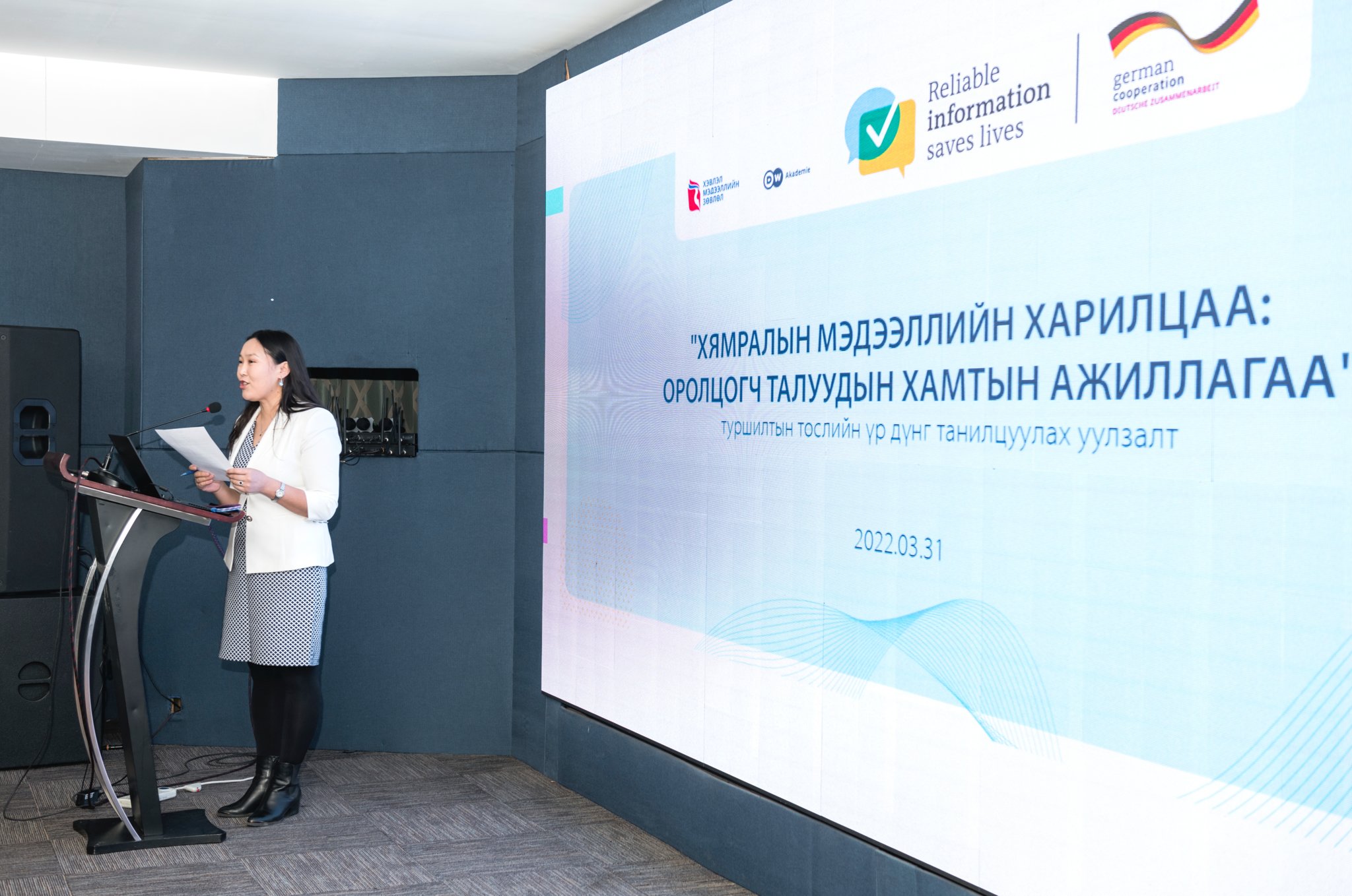| A final consultation meeting of the “Crisis Communication Chapter - Mongolia” project An extended consultation meeting was held on March 31st, 2022, to present the pilot project’s results and to determine the future orientation. The project team reported on their activities and shared their achievements and lessons learned during the meeting. Click here to see the project activity report.

The participants of the meeting concluded that the pilot project was successfully implemented. O.Batbayar, Advisor to the Minister of Health, said, “I have seen the media set a good example of how information reaches families and citizens, learns great lessons, and works together to overcome it.” D.Narantuya, Director of the National Center for Public Health, said, "Let's focus on how to implement this example at the national level and how to engage all around the country." T.Bayarkhuu, Head of the Secretariat of the State Emergency Committee, said the following regarding the experiences from the project and opportunities on how to spread it further: “Our goal is to ensure citizens’ right to know by providing opportunities to access accurate and verified information, overcome the crisis safely or with minimum loss in times of crisis. To do this, it is necessary to have a structure similar to the pilot project. Therefore, it is necessary to establish a national crisis communication team or council next to the national emergency management agency and furthermore, it’s required that the national crisis communication team should work to coordinate with other parties in times of crisis. He expressed that this idea could be supported at the level of Deputy Prime Minister and Head of the National Emergency Management Agency. Researchers and representatives of international organizations who participated in the meeting also expressed their support for establishing the expanded structure and expressed their willingness to cooperate.

In her closing remarks, G.Gunjidmaa, Executive Director of the MCM, said: that the MCM successfully fulfilled its role of coordinating stakeholders and strengthening mutual trust between stakeholders in times of crisis through the project. Thus, the tripartite alliance of the Government, the media, citizens, and mutual trust contribute to strengthening press freedom by providing reliable information to the public. Furthermore, in order to further develop the crisis communication system: 1) Sustainability or integration into the social structure, 2) Capacity building of specialists and personnel, 3) Have long-term financial support, 4) Mutual trust is important for fulfilling responsibilities without any challenges for joint participation – Government, media, civil society. For more information, please visit https://www.mediacouncil.mn/a/353.

Please find the video about the closing of the Crisis Communication Chapter and Stakeholders Cooperation project here. |

















